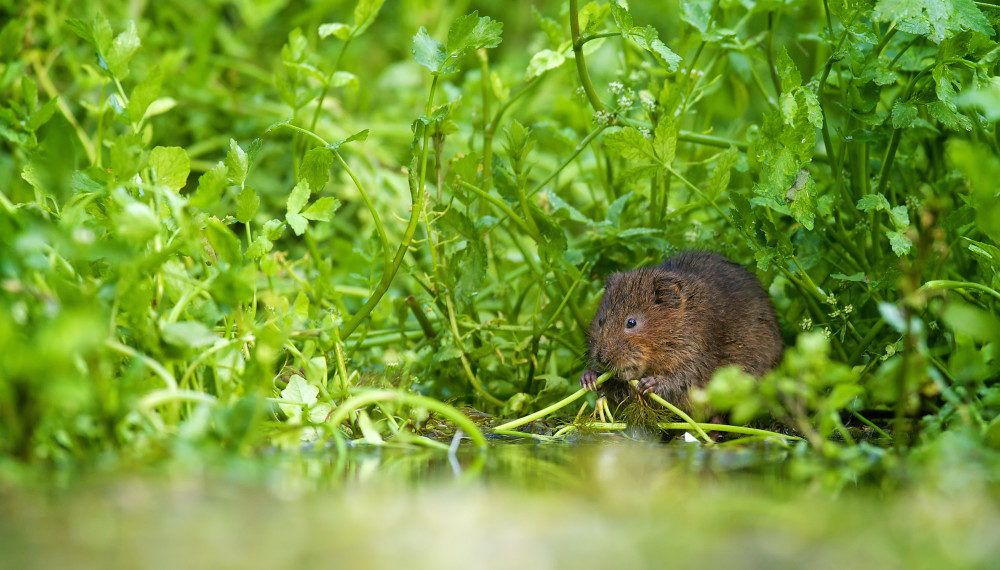National water vole database and mapping project

In order to restore water vole populations effectively, we need to understand exactly where they are thriving.
Funding for this project has now finished
Managing water ways for water voles
Surveys in the 1990s revealed an alarming 90% loss of water voles from our rivers and waterways. We responded by investigating why and how to avert the crisis from escalating further.
The main culprit is the predatory, non-native mink, escapees from fur farms in the 70s and 80s that multiplied fast. Mink are now controlled in many areas. And our research told us that managing waterways with dense buffer zones of reeds along the edges deters mink considerably. Water vole reintroductions followed, led by Wildlife Trusts and other conservation organisations.
Recording water voles on a national scale
PTES belongs to the group that oversees water vole conservation in the UK. In 2008, the group set up a national record centre to collect water vole and mink records and produce distribution maps. The maps show where water voles are and where they’re likely to disperse. Conservationists use this insight to focus habitat restoration, reintroductions and mink control effectively. And it provides the bigger picture of water vole presence and where they might spread across wider landscapes.
Nearly ten years of data suggest a further 30% decline in places where water voles live in England and Wales. But there’s a slight increase in their distribution, suggesting that some of the conservation activity is working.
PTES co-funds the national water vole database and mapping project. It’s managed by The Wildlife Trusts, with support from record centres nationwide. (The UK Water Vole Steering Group is made up of representatives of the Environment Agency, Natural England, The Wildlife Trusts, the People’s Trust for Endangered Species, Scottish Natural Heritage and Natural Resources Wales).
Thank you to all our donors who helped us fund this work. You can help us support more projects like this with a donation today:
